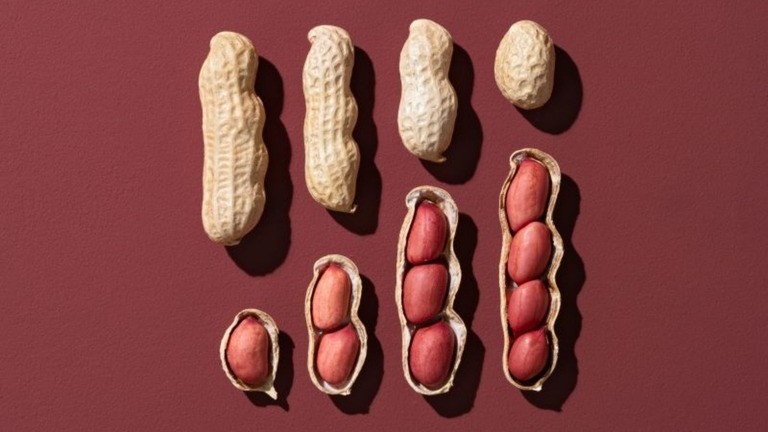「ピーナツアレルギーの患者を担当した経験がある医師はどれほどいるのか」と、アレルギー専門医であるギデオン・ラック氏はしばしば医学講演の冒頭で問いかける。
Dr. Gideon Lack, an allergy specialist, often begins his medical lectures by asking, How many of you have treated a patient with a peanut allergy?
。
In fact, more than 2% of children in the United States have a peanut allergy, and a similar incidence rate has been reported in the UK, where Dr. Lack once worked.
。
However, about 25 years ago, when he gave a lecture in Israel, only two or three people out of about 200 participants raised their hands.
。
This fact indicates that there is a significant difference in the incidence of allergies among Jewish children in the UK and Israel.
。
In order to elucidate this phenomenon, Mr. Luck and his collaborators conducted a 15-year investigation.
。
The results indicate that the incidence of peanut allergies in the United States, which had previously been increasing significantly, decreased substantially from a certain point onward.
。
They discovered that the guidance—“Don’t give peanuts to infants”—which parents, pediatricians, and even Dr. Lack himself once believed, was actually one reason for the increased incidence of allergies.
。
Mr. Luck said, We caused problems by trying to protect the children.
。
In Israel, theres a joke that the first words children learn are Mom, Dad, and Bamba.
。
Bamba is a peanut snack that is often given to Israeli infants from around 4 to 6 months of age.
。
Bamba contains a lot of peanut protein, and it is believed that this eating habit protects Israeli children from allergies.
。
Mr. Lacks research team compared the incidence of peanut allergies among about 5,000 Jewish children in Israel and London UK in order to rule out genetic factors.
。
The results show that the incidence rate in the UK is ten times higher than in Israel. In the UK, it is about 2%, while in Israel, it is almost zero.
。
In the UK, the average amount of peanuts consumed per week by children under one year old is 0 grams, while in Israel it is about 2 grams, which is equivalent to 10 bags of Bamba.
。
It used to be thought that giving peanuts to infants is dangerous and unethical, but research shows the opposite is true.
。
According to a study published in 2008, early introduction of peanuts during infancy is strongly associated with a significant reduction in the incidence of allergies.
。
However, it is necessary to identify not just correlation, but also causation.
。
Therefore, Dr. Lack and his collaborators randomly divided 640 high-risk newborns with severe eczema or egg allergy into two groups. One group began eating foods containing peanuts from 4 to 11 months of age, while the other group avoided peanuts until the age of five.
。
As a result of a 5-year follow-up study, 13.7% of the group that did not eat peanuts developed allergies, whereas only 1.9% of the group that ate peanuts early did.
。
Even among children who already show signs of allergies, the percentage was 35.3% for those who did not eat, and 10.6% for those who did.
。
The results of this LEAP study were published in a renowned medical journal in 2015, causing a sensation in the medical community.
。
However, these new discoveries were not immediately accepted into medical and social practices.
。
In 2000, the American Academy of Pediatrics recommended avoiding giving peanuts to children until the age of three, although there was no solid evidence to support this.
。
Mr. Luck also used to follow this instruction, but now he admits that it was bad advice.
。
After that, in 2008, this guideline was partially withdrawn, but it still does not strongly recommend early feeding for children.
。
However, after the LEAP study was published, the guidelines were revised in 2017 and 2021 to include more proactive recommendations.
。
According to recent studies, the rate of peanut allergies among children under the age of three in the United States has decreased by 33% since the guideline revision in 2015, and by 43% since 2017.
。
Peanut allergy, which used to be the most common, is now the second most common after egg allergy.
。
Researchers at the Childrens Hospital of Philadelphia estimate that the revision of the guidelines has enabled about 40,000 children to avoid peanut allergies.
。
Currently, Dr. Lack continues his research, focusing on whether early treatment of atopic dermatitis in infancy can help prevent food allergies.
。
Previously, it was believed that food allergies caused atopic dermatitis, but recently, the opposite has been coming to light.
。
Mr. Lucks research is a typical example that emphasizes the importance of scientific verification, showing that things which seem obvious in medicine can sometimes be overturned.

